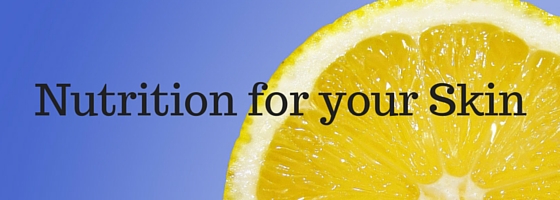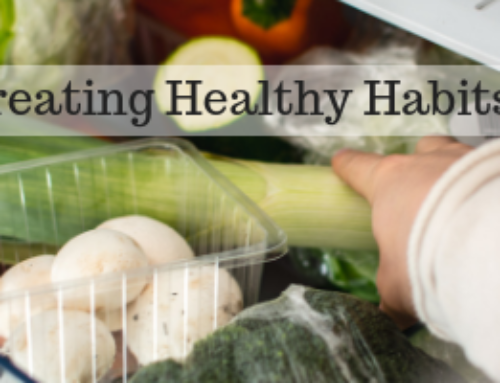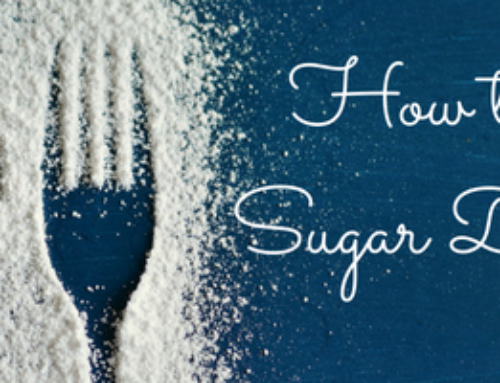When it comes to maintaining youthful and vibrant skin, what do you think about? Perhaps avoiding the sun, and dosing up on UV protection with sunblock? This is a great start, but you can also do a lot through your nutrition to nurture healthy and vibrant skin. Let’s take a look at some key strategies for protecting this important organ.
Being well hydrated is probably one of the simplest, yet most important things you can do for healthy skin. Water plumps up the skin, helps to rid the body of waste products, and ensures proper cell metabolism. I suggest drinking filtered water, whenever possible. For most adults, it is optimal to drink ½ of an ounce of water per day for each pound of body weight. Does the idea of drinking that much water overwhelm you? Try sipping on herbal teas, which can substitute for water. Also, don’t forget, with greater physically activity and/or heat, drinking even more water is important.
Vitamin C is one of the most powerful nutrients for skin health. This is primarily because Vitamin C helps to keep collagen strong. Collagen is the most prominent protein in the skin, providing it’s “scaffolding” like structure. Citrus fruits are a great source of Vitamin C, and new findings suggest that a phyto-chemical in citrus zest, called d-limonene may have some anti-cancer properties. A study out of the University of Arizona in Tucson found that people who ate as little as one tablespoon of grated citrus (lemon or orange) a week were 30% less likely to develop skin cancer. Be sure to choose organic citrus, when zesting, in order to avoid pesticide residues that may be in the peel.
Eating a low sugar diet is essential for skin health. Glucose actually competes with Vitamin C for entry into the cell, so the higher your diet is in sugar, the less Vitamin C in the skin cells. In addition to competing with Vitamin C, sugar causes damage to the skin in another way. You see, when blood sugar goes up rapidly, sugar can attach itself to collagen in a process called “glycation”, which damages the collagen. Losing this elastic resilience is one sure fire way to give yourself deep wrinkles and show signs of aging. Try to obtain 1—2 grams of Vitamin C per day to optimize your intake of this important vitamin. You may have to supplement to reach this dose.
Protecting your skin with adequate antioxidants is also important. Alpha Lipoic Acid is termed the master antioxidant, since it protects both the water part and the fat part of the cells. I usually suggest 20—100 mg per day as part of a well-rounded antioxidant program. This antioxidant is actually 400x more potent then C or E. R-Lipoic Acid Supreme is an excellent lipoic acid supplement product that also contains biotin, another vitamin essential to skin health. Biotin is a B Vitamin that supports healthy skin (and hair) through proper fat production. Eggs are well known to be a great source of biotin.
Vitamin A is another “skin” vitamin, helping to maintain the structure of the skin and stimulating the growth of skin cells. I would suggest eating eggs, liver, or taking cod liver oil to obtain Vitamin A, or increasing sources of beta-carotene, which will be converted into Vitamin A in the body. Sources of beta-carotene include red peppers, guavas, kale, collards, strawberries, papaya, and watercress. Basically your dark leafy greens and yellow-orange vegetables and fruits. Those with low thyroid may not convert beta-carotene to vitamin A effectively, and should consider a vitamin A supplement or choose the animal sources listed above.
Zinc is another nutrient that supports tissue and cell growth. Both biotin and zinc are found in eggs. Other foods that are rich in zinc include oysters, the dark meat of chicken, red meats and nuts. Protein is needed to support skin cell turnover and growth. Be sure to eat protein rich food like eggs, lean meats, poultry, fish, yogurt, or nuts with each meal. The mineral selenium is also very protective and helps to fight skin cancer. Food sources for this micronutrient include Brazil nuts, eggs, and garlic. Make sure your daily supplement has 200 mcg of selenium, the dosage that has been shown through research to be most protective.
We can’t leave this discussion without talking about omega-3 fats. These fats are essential for proper skin health, one of the first signs of an omega-3 fat deficiency is dry skin. If a person has not been obtaining a daily dose of omega-3 fats for months or years on end, then it will take several months for the body to replete itself. I suggest at least 1 gram or 1000 milligrams of EPA and DHA omega-3 fats every day to support the skin and other vital systems in the body. These fats are found in deep water fish like salmon, black cod, herring, sardines, mackerel, and tuna. I generally suggest eating an omega-3 rich fish 2 times per week and to supplement daily with a high quality fish oil. OmegaAvail Ultra’s with Vitamin D & K is an excellent omega-3 supplement that provides 1000mg of omega-3’s with fat soluble vitamins D and K in each serving, a nice bonus. Drop me a line if you would like a recommendation specific to you and your health needs.
The bottom line is to eat a diet rich in high quality proteins, healthy fats —including a daily omega-3 fat, and high in vibrantly colored fruits and vegetables. The more color the fruits and vegetables have, generally the more antioxidants and nutrients there are to support your skin. Lastly, don’t forget that it is also important to avoid sugar and foods that quickly turn into sugar, like refined grains. Sugar will glycate the proteins in your skin, and accelerate aging. Something nobody wants!
As always, if you enjoyed this blog post, please share with family and friends!






